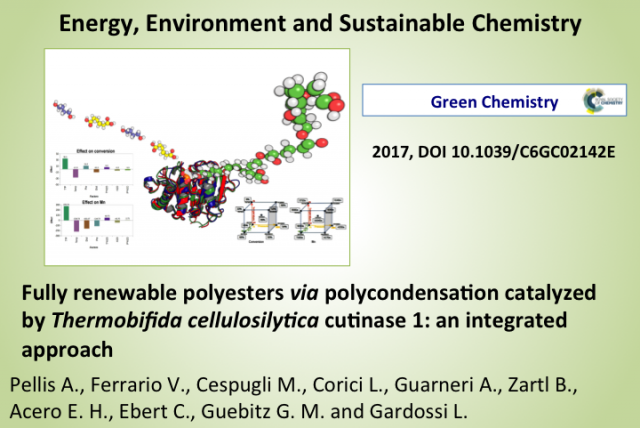GreenChemistry_2017

The present study addresses comprehensively the problem of producing polyesters through sustainable processes while using fully renewable raw materials and biocatalysts. Polycondensation of bio-based dimethyl adipate with different diols was catalyzed by cutinase 1 from Thermobifida cellulosilytica (Thc_cut1) under solvent free and thin-film conditions. The biocatalyst was immobilized efficiently on a fully renewable cheap carrier based on milled rice husk. A multivariate factorial design demonstrated that Thc_cut1 is less sensitive to the presence of water in the system and it works efficiently under milder conditions (50 °C; 535 mbar) when compared to lipase B from Candida antarctica (CaLB), thus enabling energy savings. Experimental and computational investigations of cutinase 1 from Thermobifida cellulosilytica (Thc_cut1) disclosed structural and functional features that make this serine-hydrolase efficient in polycondensation reactions. Bioinformatic analysis performed with the BioGPS tool pointed out functional similarities with CaLB and provided guidelines for future engineering studies aiming, for instance, at introducing different promiscuous activities in the Thc_cut1 scaffold. The results set robust premises for a full exploitation of enzymes in environmentally and economically sustainable enzymatic polycondensation reactions.


